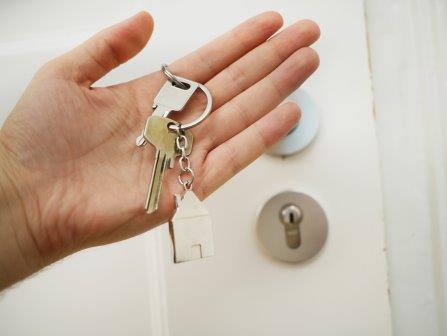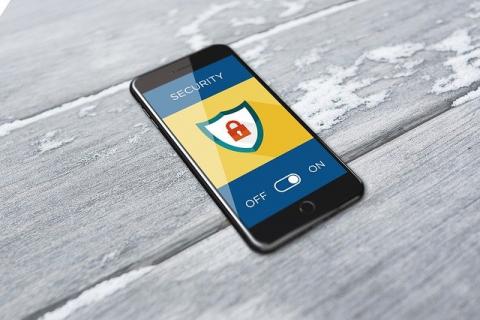Locksmiths need to comply with certain rules and regulation just like any other profession. Lock technicians need to accurately follow these rules in order to constantly perform high-quality, smooth and efficient jobs. The locksmithing profession is controlled by a series of industry laws that individual locksmiths and companies alike must obey.
Locksmith Regulations: What They Are And What They Mean
 Most world countries have specific rules that ask lock technicians to obtain an industry license before they are allowed to enter the field and offer their services to the general public. The same regulations will also at times apply to other professions, including private detectives or private security companies. In other words, anyone else involved in beefing up residential and commercial security will need to follow some of these rules as well, depending on where they live.
Most world countries have specific rules that ask lock technicians to obtain an industry license before they are allowed to enter the field and offer their services to the general public. The same regulations will also at times apply to other professions, including private detectives or private security companies. In other words, anyone else involved in beefing up residential and commercial security will need to follow some of these rules as well, depending on where they live.
Locksmith rules are issued and used to make sure that these technicians constantly maintain the highest levels of professionalism and honor when performing their specific duties. One of the requirements of these rules clearly mentions that only people who are over the age of 18 are entitled to a locksmith license. Also, someone who shows a questionable moral character or who has been charged with a felony in the past will have a hard time getting licensed. The same goes for a person who proves they are incompetent either mentally or physically or someone who has been discharged from the armed forces in a less than honorable manner. Drug or alcohol addictions are also reasons for someone's licensing request to not be granted. Plus, a person who has already received a locksmith license can have the title revoked is any of the above conditions and requirements are broken.
As a customer hiring a locksmith to replace a lock or cut a copy key, you should know that of the authorized locksmiths you will ever hire have already gone through various testing phases, including fingerprint submission for record purposes, testing, and apprenticeship stages. Hiring someone who is not authorized to function in your state and who does not have a license is a risk you will be taking on your own. Keep in mind not all US states legally require locksmiths to obtain a license. These licenses are also rather difficult to obtain, given the great level of responsibility they come with.
Legal Requirements For Someone Looking To Be A Locksmith
Locksmiths are not usually asked to have any actual legal certification, but it is necessary for them to complete a training program or become an apprentice for a well-established locksmith business or a fellow locksmith that has been in the trade for many years. They are also asked to have at least 3 months' worth of experience working in the trade; depending on the actual work they want to perform, they could be required to show proof of at least 4 years of experience. Locksmiths can also use voluntary professional certificates in case the state they live in does not ask them to be licensed to work. As for the skills a lock technician should have, we can mention excellent hand-to-eye coordination, knowledge in the field of lock installation, lock picking, including the latest advancements in the field, as well as enhanced dexterity and mechanical skills.
There are specialized courses a locksmith could complete for automotive, commercial or motorcycle locksmithing. If interested, locksmiths can also use legal and business-related courses tied to their profession. Instead of joining a training program, a future locksmith can become an unpaid apprentice and expect to be taught a plethora of technical as well as legal skills.
The Associated Locksmiths of America or ALOA on short is one of the main governing bodies in the trade. It estimates that locksmith training can last anywhere between 3 months up to 4 years. Some American states have clear locksmith regulations that claim a future locksmith is obliged to have a full-time job for at least 12 months before they can get their license. A locksmith who has worked as an apprentice for a local business can also seek a job with the respective business at the end of the 12 months.
Who Regulates The Locksmith Trade
In short, there are different types of certificates for voluntary professionals that can be obtained through ALOA, such as Certified Registered Locksmith, Registered Locksmith, Certified Master Locksmith or Certified Professional Locksmith, to name a few of the most popular levels. Each of them requires locksmiths to take the necessary exams and pass them with a score that is at least 70 percentage points. This type of certification is equal to the technician enjoying better advantages in the trade, as it can help them stand out as a professional in the field and help customers trust them a lot easier.
Are Locksmiths Who Join A Professional Organization Better?
A legitimate question for locksmiths looking to constantly grow and improve their relationship with their clients is whether joining a professional organization is worth it. Besides the ALOA, there are various other professional organizations that regulate the work of locksmiths in different parts of the country. Joining them and becoming a member will most likely bring lock technicians a series of benefits, such as getting access to continuous education alternatives, having their skills be constantly testing via computers, having legal representatives in case they get sued and enjoying better insurance and bonding options.
 Nationwide
Nationwide













 Most world countries have specific rules that ask lock technicians to obtain an industry license before they are allowed to enter the field and offer their services to the general public. The same regulations will also at times apply to other professions, including private detectives or private security companies. In other words, anyone else involved in beefing up residential and commercial security will need to follow some of these rules as well, depending on where they live.
Most world countries have specific rules that ask lock technicians to obtain an industry license before they are allowed to enter the field and offer their services to the general public. The same regulations will also at times apply to other professions, including private detectives or private security companies. In other words, anyone else involved in beefing up residential and commercial security will need to follow some of these rules as well, depending on where they live.





